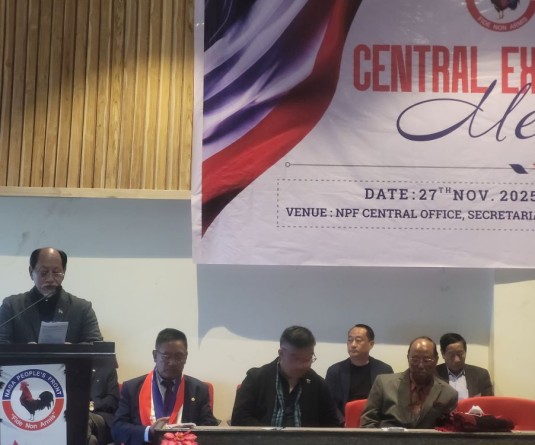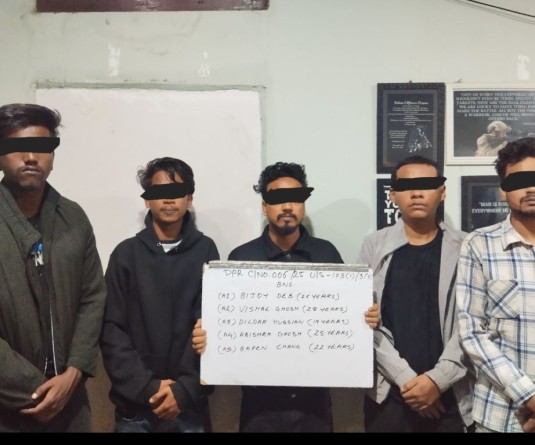
Kohima: Governor of Nagaland, Dr. Ashwani Kumar today urged the teachers and the teachers’ training institutes in Nagaland to highlight the history and long term aims and objectives of the Right to Education Act 2009. He was speaking at a function held to donate a bus by State Bank of India to Bosco College of Teachers Education Dimapur at Raj Bhavan, Kohima. “In fact, the importance of this legislation can be felt only when we use the full title ‘The Right of children to Free and Compulsory Education’,” he asserted.
Reiterating that the Parliament of India and Nagaland Legislative Assembly have already passed the RTE Act and also established National and State Commissions for Protection of Child Rights, and it is fundamental Right of every child in the age group of six and fourteen to receive free, compulsory and quality education as per prescribed norms, he said no unrecognized schools will be permitted henceforth. No fees will be charged. Books, uniforms and mid day meals will be provided free of cost. Education shall be imparted in a friendly / child centric manner and there will be no detention policy till class VIII. This will enable each Naga child to develop and grow to his/her full potential. There is no going back on this commitment to our children, he stated.
If anyone has any misgivings or doubts about this policy, the governor said, they must clarify doubts, file a representation before the Commission for Protection of Child Rights or before the State or Central Government. He added that the Supreme Court of India, several High Courts, UNESCO, UNICEF, World Bank have already examined and concluded that the provisions of the Act are in the “best interest of our children, our future generations, our State and our society.” He said that the responsibility for implementation of the Act is on the State Government and its teachers.
Further, speaking about some misgivings on the implementation of ‘no detention policy’, the governor cited, “We are told in UK, USA and many other developed countries of the World, there is no detention policy.” Even in his school, Government Primary School village Kothi, Kinnour district in Himachal Pradesh, back in 1956 – 1961, there was no detention policy up to Class V. Even before this Act of 2009 came into being, he said, in 25 States of India, especially the most advanced States, the no detention policy was being followed.
Dr Ashwani Kumar also expressed that there is need to impart more training in Continuous and Comprehensive Evaluation (CCE) to all the teachers. Stating that more tests and examination will need to be conducted under CCE than in the traditional system of holding examinations once a year, he said teachers will be required to take tests on a periodical basis to evaluate the performance and needs of each child. “Unless the primary and elementary school teachers are trained and learn these skills of continuous and comprehensive evaluation, it will be difficult to implement the new system.”
Therefore, the governor appealed to all the educationists and intellectuals to think of strategies and solutions to move forward on the road of providing free, compulsory and quality education to “our children rather than look backwards and suggest going back to the old system.”
The governor also acknowledged the “selfless services” of Bosco College of Teachers Education Dimapur and Salesian Fathers of Roman Catholic Church, which set up the former in 2003. He also lauded the State Bank of India for their voluntary donations under its Corporate Social Responsibility.






